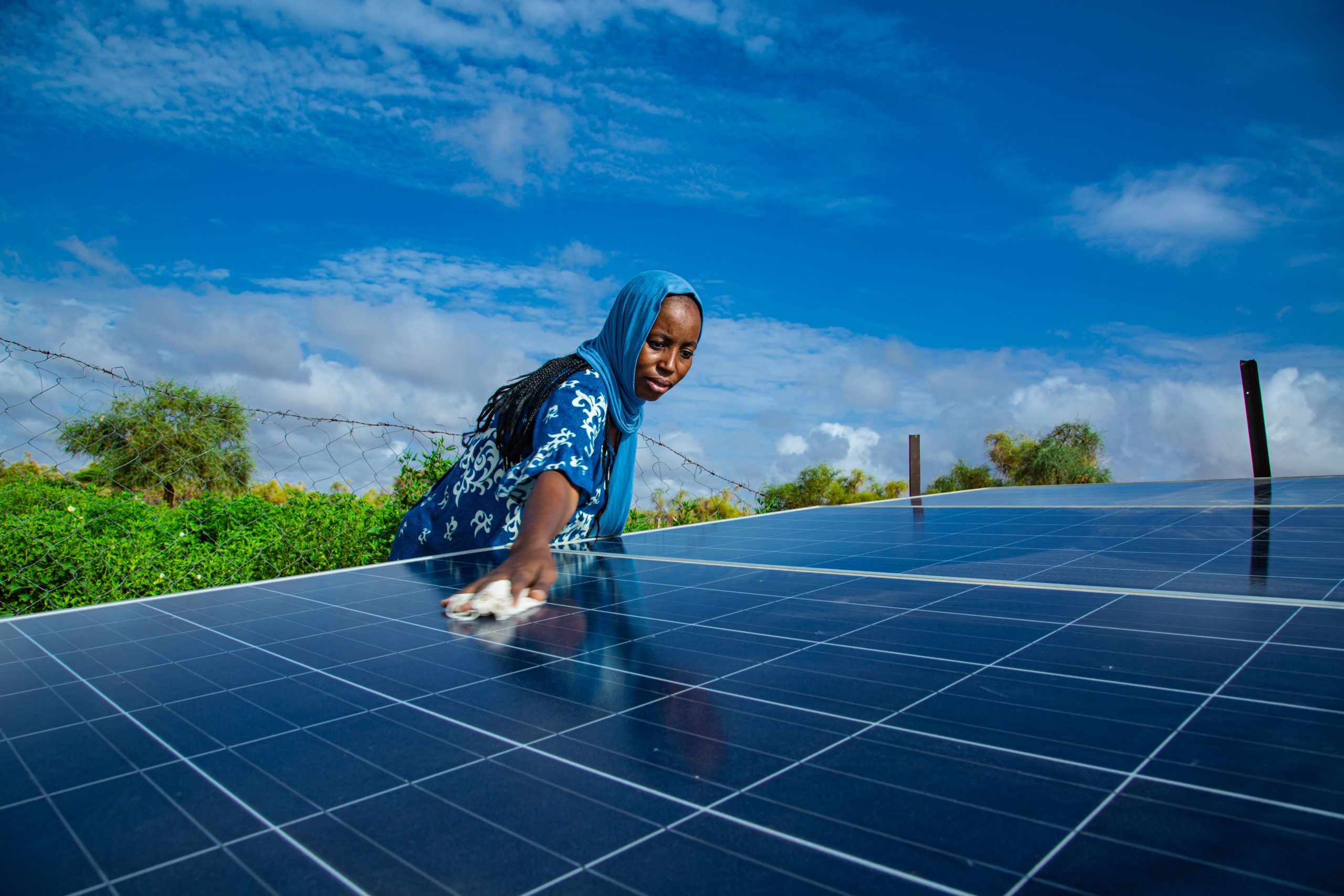News
Partnership between PIDG and University of Exeter will support major new investments in Africa based on climate science

Image credit: Raphael Pouget / Climate Visuals Countdown
The Private Infrastructure Development Group (PIDG) is joining forces with the University of Exeter and researchers across Africa to ensure that major new investments in Africa effectively tackle climate change and support communities to seize the opportunities ahead in the global green economy.
The science-based investment approach will make a difference to hundreds of millions of lives over the next decade by ensuring funds are targeted in areas that will make the biggest impact. The partnership between scientists, investors and local communities will provide a unique assessment of the climate change risks and opportunities for African communities.
The ‘African Investment Tipping Points Report’ led by the University of Exeter, will be published in time for the United Nations Climate Change Conference COP28 in the United Arab Emirates in December, and it will provide investors with a comprehensive understanding of the future climate risks based on a range of global warming scenarios with the potential for increased heatwaves, drought, heavy rain, flooding and strong winds.
The University of Exeter, alongside partners such as the University of Pretoria and UK Met Office, will define how climate change affects regions in Africa differently from the global averages which currently dominate international discourse. For example, we know that based on current climate policies Nigeria would have the second-largest population exposed to dangerously high average temperatures at 2.7°C global warming, impacting more than 300 million people. At 2.7°C, almost 100% of some countries including Burkina Faso and Mali will be dangerously hot for humans.
The research will tackle the questions of how infrastructure investors can support climate resilient and clean socio-economic development, taking into account specific climate vulnerabilities and opportunities. The Exeter academic experts will pinpoint the best ways to mobilise infrastructure investment to empower African communities in line with the Sustainable Development Goals.
The launch of the PIDG and University of Exeter partnership will take place at a roundtable event in London on Tuesday 27th June during London Climate Action Week. The event will bring together global voices representing different stakeholder groups from Africa and major investors to shape the research and ensure the best outcomes for African communities in tackling climate change. In London Climate Action Week, PIDG will also launch their 2023 to 2030 Strategy and the University of Exeter will launch a new business support initiative at the House of Lords called Green Futures Solutions which will work with businesses and governments around the world on climate and nature solutions.
Professor Lisa Roberts, Vice-Chancellor at the University of Exeter, says: “I am delighted to launch this partnership with the Private Infrastructure Development Group and African institutions to make a practical and sustainable difference to millions of people across Africa. The climate and ecological crisis is the defining challenge of our generation and we know that the impacts will be greater across the African continent than many places on Earth and we must act together in the critical decade ahead.
“The University of Exeter is a global leader on environment and climate research and home to more of the world’s top climate scientists than any other university on the planet. The University’s work leading international programmes such as the Global Carbon Budget, Global Tipping Points Report and Oppenheimer Generations Research Programme in African Landscape Systems mean that we are well placed to collaborate on this vital project to make effective and life-changing investments.”
Marco Serena, Chief Sustainable Impact Officer at the Private Infrastructure Development Group, says: “The Private Infrastructure Development Group has a clear focus in the decade ahead on mobilising finance to support climate adaptation and accelerate sustainable development for all in Africa and Asia. We have a strong track record of delivering life changing infrastructure where it matters the most, from first time access to electricity and water to new economic opportunities through logistics, transport and digital connectivity.
“With this new research, we want to ensure that we – and others make investments in infrastructure based on the best available science so that we make the biggest difference to African communities. Climate change poses both huge risks and opportunities and through our work with the University of Exeter, African and global partners we want to make sure that we not only protect and save lives but also that we enable people across Africa to lead and thrive in the global green economy.”
Related
Exeter Innovation
We are the trusted partner in transformative innovation, empowering organisations across the globe to make ecologically responsible decisions – for today and for future generations.








